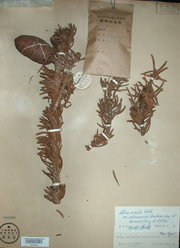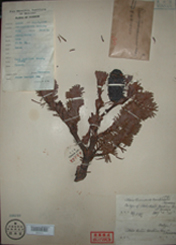|
Journal of a Sabbatical |
|||||||
|
China Trip 2000 |
|
joseph rock |
|||||
|
|
|
|
|||||
|
Quote of the Day: "You can call me Professor Zhang." -- Professor Zhang Bonus Quote: "Digitization is not preservation." - Mark Towner, New England Document Conservation Center Today's Reading: The Story of the Stone (a.k.a. Dream of the Red Chamber) by Cao Xuequin Brands of Chinese Bicycles: |
|
Friday when we were getting this all set up, István was talking about putting some of these images in the book. Frankly I think film would be a better choice for that too. It's not that the CoolPix doesn't have high enough resolution but that the memory cards only hold 4 images at the maximum resolution so I'd be constantly having to take the card out, load the images into the computer, erase the card, and start again. I could be here forever doing just one genus. So I decreed that the purpose of these images is for Zsolt to study at home and I am shooting them all at Fine resolution as JPEGs instead of whatever the term for TIFF files is. And I think I finally got it across to the guys that CDs don't last as long as they think. The camera stand shakes so I have to do everything with the 10-second delay on the self-timer, which makes it a little tedious. Since I'm set up in a corridor with the collection in a glass enclosed room on one side and windows (with no shades, blinds, or other means of blocking the direct sun) onto the pomegranate garden on the other, the light is pretty iffy too. It has taken me awhile to get into a rhythm and to get really into the project. The high point of my day was photographing a specimen collected by Joseph Rock, the last of the legendary plant hunters, in Yunnan province. That gave me a thrill, touching part of history. Actually, Joseph Rock was not just a botanist. He was an explorer, an anthropologist, and a linguist, and I guess a photographer too. He lived in Lijiang until 1949. When I told Carol I'd just photographed something collected by Joseph Rock she recounted meeting someone in Lijiang who had worked with him. Apparently he's still legendary in Lijiang. One of the things he did besides collect plants was to document the language and culture of the Naxi (also spelled Nakhi and Nahi) people, one of China's minority peoples (the paper money here depicts minority peoples but I don't know which denomination shows the Naxi). They're particularly interesting for two reasons: 1) they are a matriarchal society, 2) they have a long history of written language, which they developed. When I got back to my room I flipped through the Yunnan section of the Lonely Planet guidebook and sure enough they mention Joseph Rock and his masterwork on the Naxi people as well as his plant hunting. Anyway, handling a specimen collected by Joseph Rock made me want to go through those old stacks of National Geographic in La Madre's attic (if they're still there) looking for the great plant hunter's dispatches from Yunnan.
We ate in an elegant dining room with a view of bamboo and interesting rocks. They served thirty dishes, which I didn't write down the names of. I know I skipped the duck and the pigeon - I can't stand the thought of eating a duck. There were cold dishes and hot dishes and soup and finally rice in traditional banquet order. One of the dishes I do remember, because I really liked it was small whole cucumbers that you dipped in kind of a black bean paste. They were out of this world. The thousand year old eggs (or however many years that is) were a lot like the tea eggs we have at breakfast except the egg whites were gelatinous. There was broccoli too. I remember that because I was sitting next to another guest from the USA, a Chinese guy who teaches at the University of Arizona, who said that he had never seen broccoli until he moved to the states. We had a long discussion about how popular broccoli is in Chinese restaurants in the US and how prevalent it is here in Beijing. Then we got into speculating about the history of broccoli. Where did it originate? Who introduced it to China? When? We were really getting into this and branched out into other vegetables that have migrated too. This is what happens when a large group of botanists eats vegetables I guess. |
|||||
|
Copyright © 2000, Janet I. Egan |
||||||
 Photographing
the conifers in the National Herbarium collection with
Zsolt's Nikon CoolPix 990 is what I'm here for. The idea is
to create a CD so Zsolt can study them at home in Framingham
instead of here in Beijing. That's a reasonable idea I
guess, but I've been dubious about this project because
Zsolt & István have gotten the idea that this
preserves them for years to come. Film would be a better
choice if they want to preserve the archives for as long as
possible.
Photographing
the conifers in the National Herbarium collection with
Zsolt's Nikon CoolPix 990 is what I'm here for. The idea is
to create a CD so Zsolt can study them at home in Framingham
instead of here in Beijing. That's a reasonable idea I
guess, but I've been dubious about this project because
Zsolt & István have gotten the idea that this
preserves them for years to come. Film would be a better
choice if they want to preserve the archives for as long as
possible. Carol
and Rosalie invited me to a banquet at restaurant in the
Botanical Garden - the north garden, which is more like a
park, as opposed to the south garden where the herbarium is
- hosted by the director of the garden and Rosalie's new
best friend Mr. Kang who is actually a friend of Tomasz.
Rosalie bought a rock, a really big rock, the other day when
she accompanied Tomasz on a visit to Mr. Kang who showed
them around the Temple of Heaven and other sights. Mr. Kang
is helping Rosalie arrange to ship the rock home so they've
become quite friendly.
Carol
and Rosalie invited me to a banquet at restaurant in the
Botanical Garden - the north garden, which is more like a
park, as opposed to the south garden where the herbarium is
- hosted by the director of the garden and Rosalie's new
best friend Mr. Kang who is actually a friend of Tomasz.
Rosalie bought a rock, a really big rock, the other day when
she accompanied Tomasz on a visit to Mr. Kang who showed
them around the Temple of Heaven and other sights. Mr. Kang
is helping Rosalie arrange to ship the rock home so they've
become quite friendly.